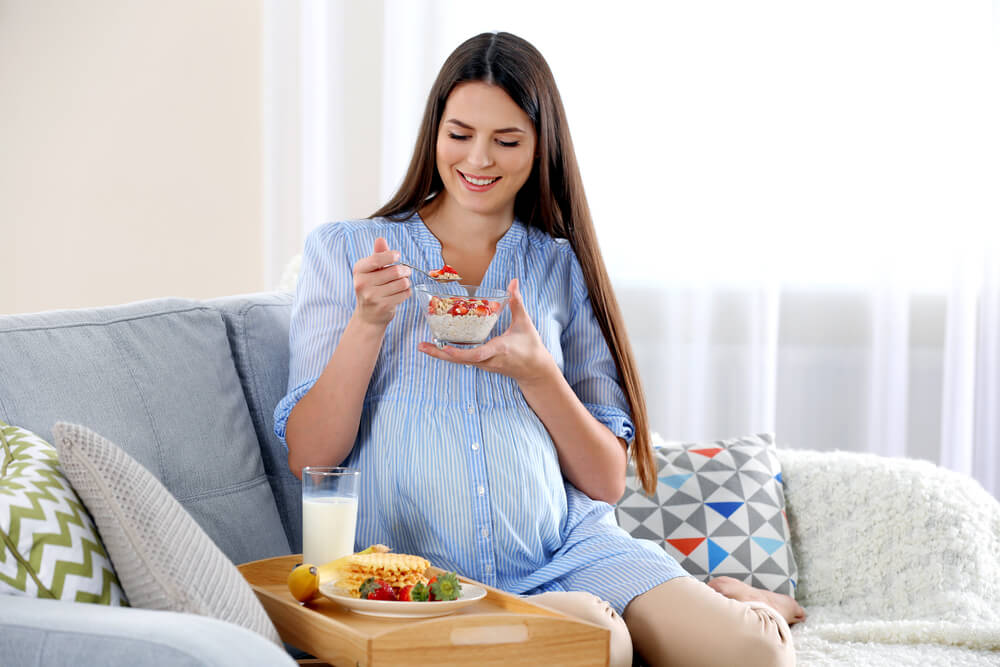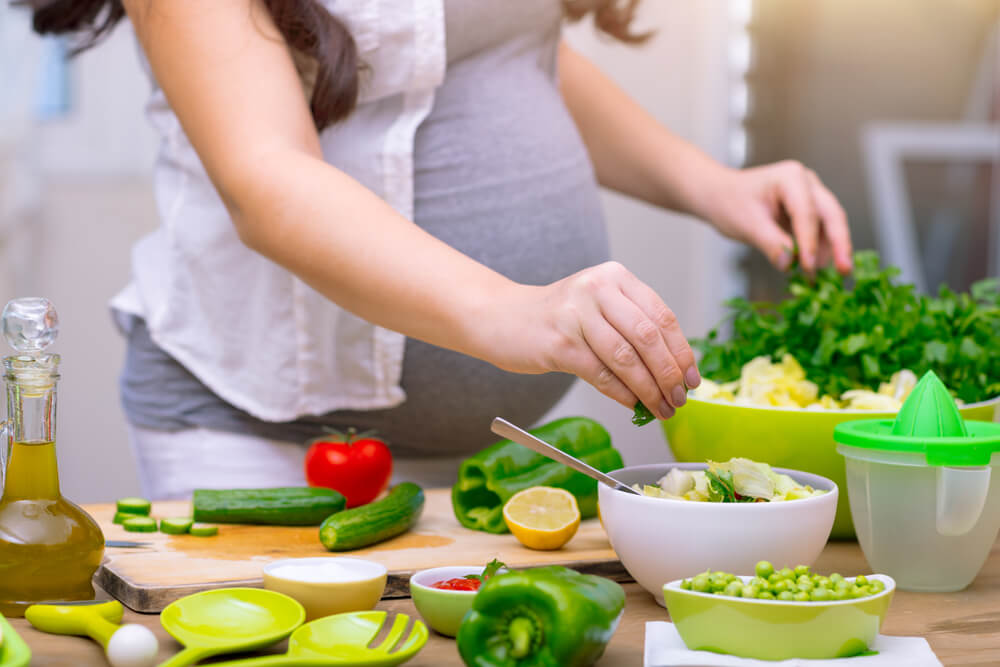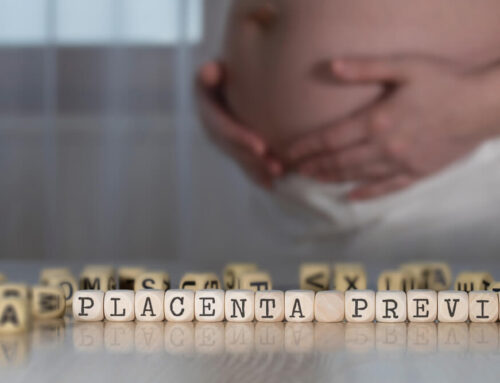Pregnancy is a significant period in a woman’s life, and proper nutrition during pregnancy is essential for the health of both the mother and the developing fetus. A balanced diet is necessary to provide the nutrients needed for the growth and development of the baby, as well as to maintain the mother’s health. In this article, our expert obstetrician in Weston and Pembroke Pines, FL, will discuss the top nutrients and best food for pregnancy and what not to eat when pregnant.
A lack of essential nutrients and high-protein food in pregnancy can result in complications during pregnancy and delivery and long-term health problems for both the mother and the baby. Additionally, adequate nutrition during pregnancy can prevent the risk of low birth weight, premature birth, and congenital disabilities.
Dietary and Caloric Recommendations in Pregnancy
During pregnancy, women must consume a well-balanced diet of carbohydrates, proteins, fats, vitamins, and minerals. A pregnancy diet rich in fruits, vegetables, whole grains, lean proteins, and healthy fats can provide the necessary nutrients for the growing baby. According to the American College of Obstetricians and Gynecologists (ACOG), pregnant women should aim to consume an extra 300-450 calories per day in the second and third trimesters.
Pregnant women, like most people, have periods when they eat healthy and periods when they eat more ‘treat’ foods. Cravings, particularly for sweet, salty, or fatty foods, are common during pregnancy and can be challenging to control.
If you’re pregnant and experiencing severe morning sickness or vomiting, try to consume what you can. Talk to a doctor or midwife if you have any concerns.
Most Important Vitamins and Minerals for a Pregnant Woman

Pregnant women require additional amounts of certain vitamins and minerals to support the growth and development of the baby. The most important ones for a pregnant woman include the following:
- Folate: Folate, also known as folic acid, is crucial for developing the neural tube, which forms the baby’s brain and spinal cord. Pregnant women should consume at least 600 micrograms of folate per day. Foods rich in folate include leafy greens, citrus fruits, beans, and fortified grains.
- Iron: Iron is essential for forming hemoglobin, which carries oxygen to the baby. Pregnant women need 27 milligrams of iron per day. High-protein foods in pregnancy that are rich in iron include red meat, poultry, fish, beans, and fortified grains.
- Calcium: Calcium is necessary to develop the baby’s bones and teeth. Pregnant women should aim for 1,000-1,300 milligrams of calcium per day. Foods rich in calcium include dairy products, leafy greens, and fortified products.
- Vitamin D: Vitamin D is essential for the absorption of calcium and the development of the baby’s bones and teeth. Pregnant women should aim for 600-800 international units (IU) of vitamin D daily. Foods rich in vitamin D include fatty fish, egg yolks, and fortified products.
- Omega-3 Fatty Acids: Omega-3 fatty acids are essential for the development of the baby’s brain and eyes. Pregnant women should aim for 200-300 milligrams of omega-3 fatty acids daily. Foods rich in omega-3 fatty acids include fatty fish, nuts, and seeds.
Pregnancy Diet Ideas
Here are some ideas to ensure that you consume a well-balanced diet and the best food for pregnancy:
- Breakfast: A breakfast consisting of whole-grain cereal, low-fat milk, and fresh fruits can provide the necessary nutrients for the baby.
- Snacks: Snacks such as fruit, yogurt, nuts, and seeds can provide a quick and healthy energy boost.
- Lunch: A lunch consisting of lean protein such as chicken or fish, whole-grain bread, and vegetables contains the necessary nutrients for the baby.
- Dinner: A dinner consisting of lean protein such as tofu, vegetables, and whole grains also offers enough nutrients for the developing fetus.
Fluid Intake During Pregnancy
In addition to a well-balanced diet, pregnant women should also aim to stay hydrated by drinking plenty of fluids. It is recommended that pregnant women consume at least 8-10 glasses of water per day. Adequate hydration can help prevent constipation, urinary tract infections, and preterm labor. However, note that pregnant women should avoid drinking too much caffeine, which can increase the risk of miscarriage and low birth weight.
What Not to Eat When Pregnant
While pregnant women should aim to consume a well-balanced diet, there are certain foods that they should avoid, too. These include:
- Raw or undercooked meat, poultry, and seafood: Raw or undercooked meat, poultry, and seafood can contain harmful bacteria and parasites that can cause food poisoning and harm the developing baby.
- Unpasteurized dairy products: Unpasteurized dairy products may also have bacteria that could negatively affect a baby’s development.
- Raw or undercooked eggs: Raw or undercooked eggs are another source of harmful bacteria that can lead to food poisoning and potentially harm the fetus.
- Fish high in mercury: Fish high in mercury, such as shark, swordfish, king mackerel, and tilefish, can damage the developing baby’s nervous system.
- Alcohol: Alcohol can harm the developing baby’s brain and cause long-term health problems.
Guidelines for Safe Food Handling in Pregnancy

In addition to avoiding certain foods, pregnant women should follow safe food handling guidelines to prevent foodborne illness. These guidelines include the following:
- Wash hands and surfaces: Wash hands and surfaces thoroughly before preparing food to prevent the spread of harmful bacteria.
- Cook meat thoroughly: Cook meat, poultry, and seafood thoroughly to kill bacteria and parasites.
- Store food properly: Store food properly to prevent the growth of harmful bacteria.
- Avoid cross-contamination: Use separate cutting boards and utensils for raw meat, poultry, and seafood to prevent cross-contamination.
To Conclude
Both you and your growing baby benefit from the prenatal nutrition you provide.
Pregnant women should follow a diet that is rich in proteins and low in sugar, salt, and saturated fats.
It’s natural for a pregnant woman to put on weight, but extremes in weight gain or loss can be dangerous for both mom and baby. How much a pregnant woman can safely gain is determined by her starting weight.
You can meet your nutritional requirements with a well-balanced diet while pregnant. Pregnant women are encouraged to consume foods with a greater concentration of certain nutrients.
Nutrients like folate, iron, iodine, and vitamin D are essential for a developing baby’s health and can even help avoid some diseases. Taking a folic acid supplement is recommended for women who intend to become pregnant for at least three months before and after conception. Folic acid supplements have been shown to reduce the risk of neural tube abnormalities.
Please consult your physician or nurse before beginning or changing the dosage of any dietary supplement.
In Pembroke Pines, you can choose from several highly qualified gynecologists. However, if you want to be cared for by understanding and competent professionals, you should visit the Advanced OBGYN Institute. More precisely, don’t hesitate to reach out to Dr. Kompal Gadh, OBGYN. Throughout her career, she has assisted thousands of women in prioritizing their health, having happy, healthy births, and meeting their reproductive health goals.






